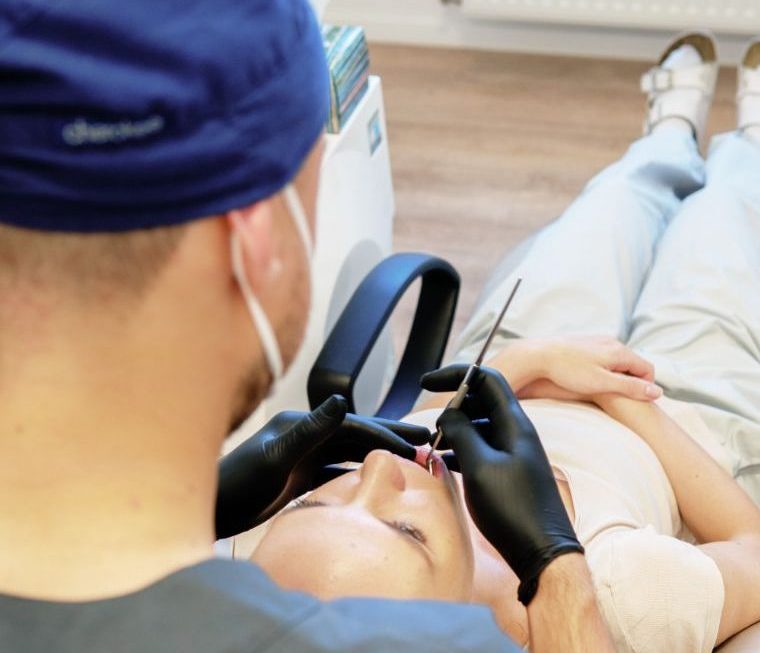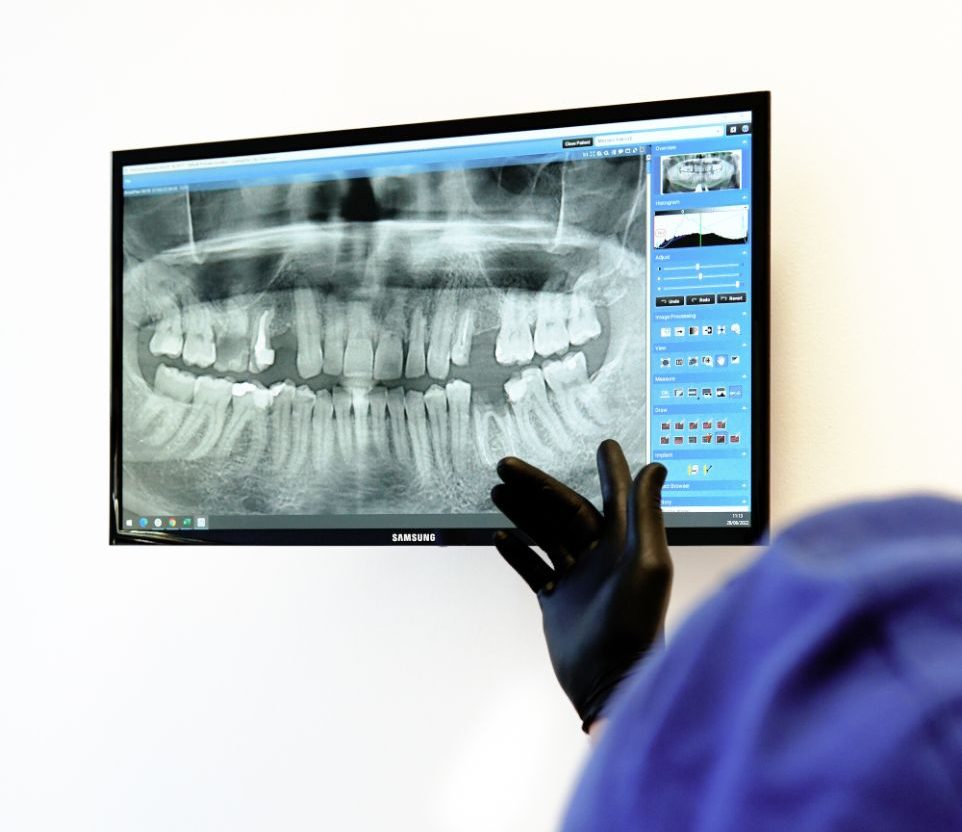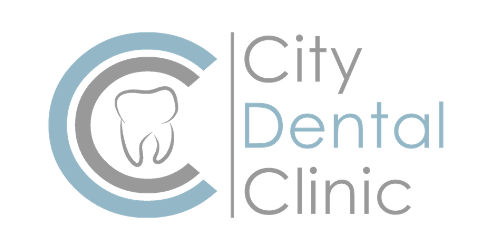Dentistry is not just about tooth treatment, dentures and dental hygiene. Often it is also necessary to perform major surgical procedures in the oral cavity. It is thanks to these that the quality of life can be significantly improved, even in cases that were not solvable in the past. All such surgical procedures on the teeth, jaws and soft tissues are classified as oral surgery. Today, these surgical procedures, such as extractions of the ossicles, are quite common and, thanks to modern technology, painless.

The most common oral surgery procedures at City Dental Clinic
Extractions of teeth and broken tooth roots
This procedure involves the removal of a tooth from its tooth bed by mechanical action. It is performed when the tooth can no longer be saved. Extractions are always performed under local anaesthesia and are painless.
Wisdom tooth extractions
Both wisdom tooth extractions and complicated extractions of impacted wisdom teeth are procedures that most of us have undergone or will undergo. Thanks to the professional approach of our experienced dentists and local anesthesia, they are completely painless.
Bone augmentation
Bone augmentation is a surgical procedure that allows even people with small bones to get dental implants. In their natural bone, the implant would not hold and so the bone is literally augmented. This procedure can also be used for damaged bone tissue. Bone augmentation takes approximately 6 to 12 weeks to heal and then a dental implant can be placed in the restored jawbone. Thanks to a small surgical procedure, you no longer have to worry about dentures.
Sinus Lift
If there is insufficient bone thickness and volume in the area of the back upper teeth to place implants, we perform a surgical procedure called a Sinus Lift. With this surgical procedure, we gently lift the membrane that lines the jaw cavity, creating a space that we fill with a bone substitute. This gives us the extra bone volume needed to place the dental implant.
Removal of a dental cyst
A cyst is a formation that is locally circumscribed and usually filled with fluid. Such formations make the patient’s life uncomfortable or interfere with the aesthetic zone. Removal of a dental cyst in our practice is performed surgically using local anesthesia. It is a painless procedure that takes on average 45 min.
Curettage of the periodontium
Periodontitis is a disease that currently affects a high percentage of the population. It is manifested by bleeding gums, suppuration and, in the final stage, wobbling and tooth loss. Curettage of the periodontium can stop this process. This means a perfect cleaning of the teeth and interdental spaces, removing tartar and preventing its deposition. The surgical procedure can clean below the gum level both the root surface and the inflammatory granulation tissue. This removes the inflammation and performs a deep cleaning. The root surface is then prepared for reattachment of the gum. The procedure is carried out under local anaesthesia.
Dental Implants
A dental implant is an artificial object that serves as a replacement for a missing tooth or an abutment for dentures. It is a titanium root that is inserted into the jaw or the jawbone, and during the healing process, it grows to the bone, where it remains firmly anchored and fully replaces the living root.

How to prepare for a surgical procedure?
Any surgical procedure naturally causes fear and apprehension in patients. In addition to pain, patients are afraid of the unknown. That’s why we explain how the procedure will work before the procedure. The procedures are painless as we always use local anesthesia. A few hours before the actual procedure, we recommend that you eat only light food and drink water, we do not recommend smoking and drinking alcohol is strictly prohibited. Before arriving at the clinic, clean your teeth and interdental spaces thoroughly. If you have the flu, have a cold, corns or herpes please let us know in advance and our doctors will make a decision to reschedule the procedure.
Recovery after surgery
Any surgical procedure in the oral cavity will understandably cause a reaction. This is most often swelling, mild discomfort and pain, which can persist for 2 days most of the time. The swelling in patients also usually disappears within two days, but in some cases it can be up to a week. In the case of wisdom tooth extraction, there may be a different reaction, with the most common being swelling that peaks on the third day after extraction and then begins to subside. The pain is significantly relieved by taking medication. In most cases, you will be able to return to your normal daily routine immediately. For a few days after the procedure, we recommend brushing your teeth with a soft-bristled toothbrush and avoiding excessive rinsing.
If you have significant swelling, fever, or your pain medication is not working, it may be a sign of infection or other complications. If this is the case, you need to contact us, but this is not a reason to panic.
Contact us
we will contact you
